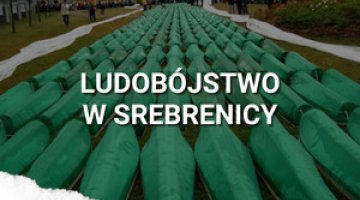The tactical resignation of the Serbian president
On 5 April, ten months before the end of his term, the Serbian president, Boris Tadic resigned from his office. His resignation will enable the presidential, parliamentary and local elections to be held on the same day 6th May. Until the new president is sworn in, the president of the National Assembly, Slavica Dukic Dejanovic from the Socialist Party of Serbia (SDS) will take on the duties of acting president.
Commentary
-
The parliamentary and presidential elections in Serbia will once again be the arena of a battle between Tadic and his party – the ruling Democratic Party (DS) – with the right-wing Serbian Progressive Party (SNS) led by Tomislav Nikolic. At present SNS is leading the opinion polls (approximately 33.4%) but its dominance over DS is rather small and constitutes 2-3 percentage points. None of these parties stands a chance of forming a government on its own and the composition and political stance’ of a future coalition will depend on results recorded in the elections by smaller parties, of both extreme-right and liberal persuasions.
-
Tadic’s decision to cut short his term in office is a tactical move which is intended to increase his chances and those of DS winning the elections. He is hoping that his personal popularity will be reflected in good results for the DS. Tadic is the favoured candidate in the presidential election (with the support of 36% of the voters), his party is supported by 29% of the electorate. Furthermore, one of the characteristics of presidential elections in Serbia is a higher turnout, which is favourable for DS as its voters are less disciplined.
-
The snap presidential election is also beneficial for Tadić himself as he is presenting himself as a head of state who has given up power in order to make savings due to all elections being held simultaneously. He is explaining his decision by the willingness to accelerate reforms and not to extend the political battle over the following months. Despite this, due to the worsening economic situation in Serbia and the necessity introduce austerity measures Tadic’s re-election seems much more likely now than if the election had been held according to the normal schedule. The government, while postponing difficult decisions, has taken a series of steps aimed at counter-balancing the impact of the economic crisis on the living conditions of Serbians (including the unfreezing of salaries in the public sector as well as social security benefits).
-
The change in the attitude towards the EU in the ranks of SNS politicians who since 2008 have been avoiding anti-European rhetoric and moderately supporting Serbia's integration with the EU makes it more difficult for Boris Tadic and DS to run their electoral campaign. They are no longer seen as the only guarantor of Serbia's pro-European orientation. It is the first campaign in Serbia which does not revolve around EU integration but which is focused on economic and social issues.
- Under pressure from the EU the Serbian government has withdrawn from holding local elections in Serbian communes in the territory of Kosovo. However, this electoral campaign has provoked strains in the relationship between Pristina and Belgrade. Although the issue of Kosovo has lost importance when compared to previous elections, none of the parties (except for the Liberals) has refrained from displaying an uncompromising political approach to Pristina.





